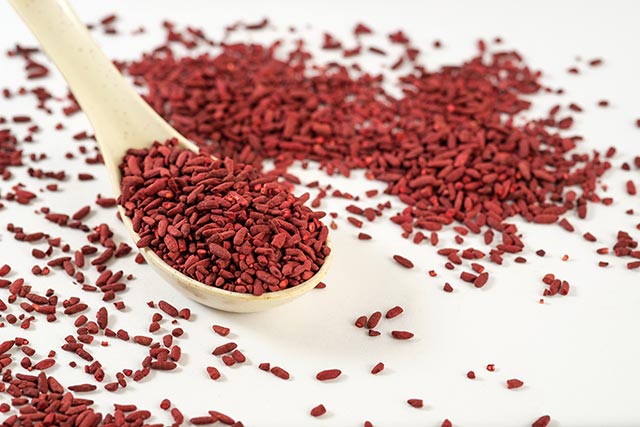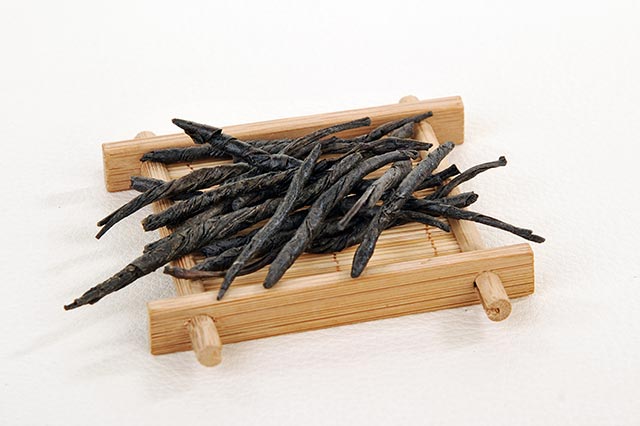Study finally confirms “inflammatory theory” of heart disease: Findings can be used to develop new treatments that minimize stroke risk
11/24/2019 / By Ralph Flores

Many people know that plaque buildup is a precursor for heart disease, but what can be done to target this condition? In a recent study published in Nature Medicine, a team from the Icahn School of Medicine at Mount Sinai in New York identified a specific immune cell found in arterial plaque in those who recently suffered a stroke or mini-stroke. Their findings, which they also presented at this year’s Vascular Discovery Scientific Sessions, suggested the possibility of using targeted therapy designed to prevent heart attacks and strokes in high-risk individuals.
For senior author Chiara Giannarelli, the study is a welcome addition to an already burgeoning body of work on arteriosclerosis. This will also allow others to better understand the many features of plaque buildup, a condition that still boggles scientists despite decades of research.
“Most of the research has involved looking at human tissue under the microscope,” Giannarelli said. “Little is known about how and which individual cell types contribute the most to ruptures causing [a] stroke or heart attack.”
For the study, the team included nearly 40 patients, all of whom had undergone carotid endarterectomy, an invasive procedure that removes plaque from arteries that supply blood to the brain. At the time of the study, some patients reported having no symptoms, while others experienced either a stroke or a mini-stroke in the past six months. Plaque tissue from the participants was then analyzed using a technique called mass-cytometry to determine its basic cellular make-up. (Related: Inflammation is the cause of nearly all disease – Here’s how to prevent it.)
Sponsored: NEW Biostructured Silver First Aid Gel created by the Health Ranger combines three types of silver (ionic silver, colloidal silver, biostructured silver) with seven potent botanicals (rosemary, oregano, cinnamon and more) to create a breakthrough first aid silver gel. Over 50 ppm silver, verified via ICP-MS lab analysis. Made from 100% Texas rain water and 70% solar power. Zero chemical preservatives, fragrances or emulsifiers. See full details here.
“We found an unexpected dominance of T-cells in this plaque,” explained Dawn Fernandez, a distinguished professor at ISSMS and the lead author of the study. “These findings in the plaque were different and unrelated to T-cell levels found in the patients’ blood samples.”
T-cells, also known as T-lymphocytes, are white blood cells that play a vital role in adaptive immunity, or the body’s immune response after exposure to a pathogen. In the study, however, the researchers found that T-cells have an unexpected role in driving up risk factors for atherosclerosis.
In particular, the team found that T-cells were present in more advanced plaques and that CD4-positive effector memory cells – a T-cell subtype – were more common in those who experienced a stroke. According to an article published in Seminars in Immunology, CD4 T-cells play a less-defined role in immunity, making them challenging to study. For the researchers, the presence of T-cells in plaque tissue could suggest localized inflammation unrelated to any systemic immune response.
“This milestone study finally proved the inflammatory theory of heart disease,” Giannarelli said. “This may help us eventually identify targets for new immune therapies for the late stages of atherosclerosis.”
Fight inflammation with food
If plaque buildup is a precursor to inflammation, then a healthy diet is a potential way to circumvent the condition, as well as its deleterious complications.
In fact, adding more anti-inflammatory foods into your diet won’t just reduce the risk of heart disease, these are also loaded with other nutrients that help the body in many ways. (h/t to Healthline.com)
- Fatty fish: Despite the name, fatty fish are great anti-inflammatory foods, thanks to omega-3 fatty acids. In addition, eating fatty fish like salmon, mackerel, herring, and anchovies can also cut down the risk of other chronic diseases like diabetes and kidney disease.
- Broccoli: Part of the cruciferous family of vegetables, consuming broccoli can reduce the risk of heart disease and cancer. In addition, the vegetable is a rich source of sulforaphane, an antioxidant with potent anti-inflammatory properties.
- Peppers: Aside from being loaded with vitamin C and other powerful antioxidants, peppers contain compounds that have anti-inflammatory properties.
- Turmeric: The spice has been revered the world over, especially in Ayurveda, on account of its many health benefits. Curcumin, the active ingredient in turmeric, is considered a powerful anti-inflammatory agent. Unfortunately, the body doesn’t absorb curcumin that well. Adding black pepper to turmeric significantly boosts absorption.
Looking for more foods to keep inflammation (and heart disease) at bay? Food.news has you covered.
Sources include:
Tagged Under: atherosclerosis, breakthrough, cardiovascular disease, discoveries, heart attacks, heart disease, heart health, immune response, immunity, inflammation, mind body science, plaque buildup, research, stroke



















